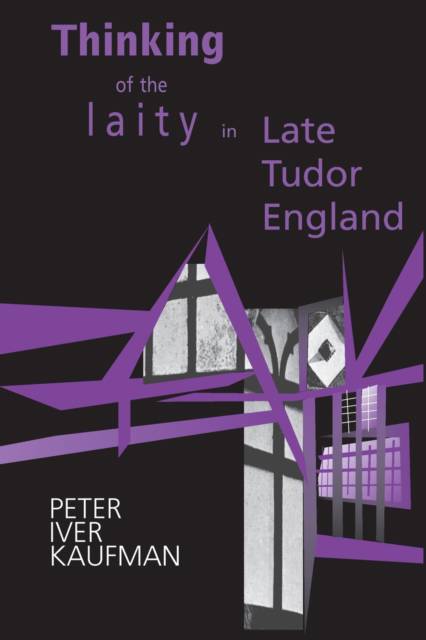
- Afhalen na 1 uur in een winkel met voorraad
- Gratis thuislevering in België vanaf € 30
- Ruim aanbod met 7 miljoen producten
- Afhalen na 1 uur in een winkel met voorraad
- Gratis thuislevering in België vanaf € 30
- Ruim aanbod met 7 miljoen producten
Omschrijving
Historians are usually more intrigued by what was than by what might have been. It is not surprising, then, that a relatively tame Elizabethan puritanism has been deposited in the mainstream of English Protestantism while some radical schemes, or what Peter Kaufman refers to as the "what might have been," are more or less overlooked. Thinking of the Laity features fresh evidence that the advocates of broadly participatory parish regimes publicly confronted their critics. It collects shards of the expectations and regrets that survive in a few petitions, in manuscript records of university controversy, and in the recollections of proponents of lay and local control. Kaufman argues that to assemble these fragments is to find forgotten moments in the Elizabethan polity debates and to recover thinking about the laity that gave "revolutionary force" to late Tudor puritanism.
Elizabethan reformers, especially the most "forward," outspoken puritans, accused English Catholics of "expound[ing] ecclesia to be a state opposite unto, and severed from the laitie." Kaufman's study concentrates on the identity and aspirations of these reformers who sought to remedy the "severing" of the church from its people by instituting the extraordinarily controversial solution of broadly participatory parish regimes. Reformers recommended lay involvement in parish elections and in disciplining deliquents. Opponents of the reformers perceived the participatory initiatives as a threat to order and clerical authority, and opposed experiments with laicization, democratization, and local control. By the late 1580s the Puritans had lost their fight, but the debate was both lively and public, and as Kaufman deftly and persuasively reminds us, the roads not taken are still important parts of the historic landscape.
Thinking of the Laity explains why proposals for expanding lay prerogatives failed to shape the Elizabethan religious settlement from the 1560s through the 1580s. It also greatly adds to our understanding of the policy debates that are closely associated with the origins of puritanism, presbyterianism, and congregationalism. This book will be essential reading for people interested in the history of early modern England and in the progress of sixteenth-century religious reform.
Specificaties
Betrokkenen
- Auteur(s):
- Uitgeverij:
Inhoud
- Aantal bladzijden:
- 194
- Taal:
- Engels
Eigenschappen
- Productcode (EAN):
- 9780268033057
- Verschijningsdatum:
- 1/10/2004
- Uitvoering:
- Paperback
- Formaat:
- Trade paperback (VS)
- Afmetingen:
- 137 mm x 204 mm
- Gewicht:
- 294 g

Alleen bij Standaard Boekhandel
Beoordelingen
We publiceren alleen reviews die voldoen aan de voorwaarden voor reviews. Bekijk onze voorwaarden voor reviews.











